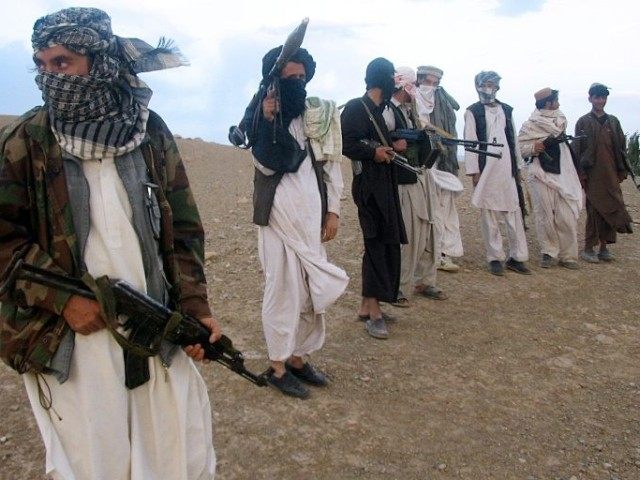Pakistani authorities, in an effort to persuade the Afghan Taliban to participate in peace talks, reportedly warned the terrorist group that it will pay a heavy prize if it continues to perpetrate violence.
The warning, however, fell on deaf ears.
On Tuesday, a day after the Pakistani authorities urged the Taliban to shun violence, the terrorist group took credit for detonating a car bomb in the center of the Afghan capital.
Afghan Interior Ministry spokesman Sediq Sediqqi said the attack left at least 30 people dead, including women and children, and more than 320 injured, with many of the wounded fighting to stay alive in the hospital.
Sediqqi added that the fatality toll could rise further.
The attack came days after the terrorist group announced the start of its “spring offensive,” which has marked the beginning of the heavy fighting season since the Afghanistan war began in October 2001.
Local media quoted an anonymous Pakistani official as saying that Islamabad has urged the Afghan Taliban leadership to call off their “spring offensive,” Khaama Press reports.
Through “intermediaries,” Pakistan has conveyed a clear message to the Taliban leadership that they would pay a “heavy price” if they refused to go back to the peace negotiating table, reportedly said the official.
The Pakistani official did not elaborate on what a “heavy price” would entail.
Late last month, the Taliban said it will not engage in peace talks with the Afghan government because it is winning the war.
In December 2015, the Quadrilateral Coordination Group (QCG) — which consists of the United States, China, and Pakistan — launched the Afghan peace and reconciliation process.
The warning by the Pakistani authorities came amid concerns that the Taliban spring offensive could derail the peace negotiations, noted the Pakistani official.
When they announced the start of their spring offensive last week, the Taliban jihadists vowed to launch large-scale attacks against the U.S.-backed Afghan government backed by suicide and guerrilla attacks.
The offensive has been dubbed “Operation Omari,” named after the late Taliban founder Mullah Mohammad Omar.
Various news outlets noted that Tuesday’s attack, the deadliest in Kabul since at least 2011, marked the start of the “spring offensive.”
“The violence began just before 9am local time, when a truck packed with hundreds of kilograms of explosives was rammed into the compound of a security force that protects Afghan VIPs and government officials,” reports the Guardian.
“At least one fighter dressed in military uniform raced inside and battled police with an assault rifle,” it adds. “Outside there was carnage on streets that had been crowded with people waiting at a nearby bus stop, or on their way to work or school.”
U.S. and Afghan officials have accused Pakistan of serving as a sanctuary for the Taliban.
Earlier this month, Maulana Yousaf Shah, leader of the Jamiat Ulema-i-Islam-Sami (JUI-S) political party in Pakistan, said his party feels proud to support the Afghan Taliban, Khaama Press reports.
Moreover, Sartaj Aziz, Pakistan’s foreign affairs adviser, recently conceded that Islamabad has influence over the terrorist group, saying the facilities being used by the Taliban in Pakistan could be used as leverage to encourage the militants to participate in the peace negotiations.
“A top Afghan defense official said last week that Taliban group leaders are convening key meetings in their safe havens inside the Pakistani soil,” reports Khaama Press.
Referring to Tuesday’s attack, the Washington Post reports that it “was a message that the reach of [Taliban] fighters — and their ability to stage major coordinated attacks — appears undimmed, despite rifts within the militant group’s ranks and pressures from the rival Islamic State, as it seeks to expand its influence in Afghanistan.”
The Taliban has grown stronger since President Barack Obama declared an end to the U.S.-led combat mission in Afghanistan at the end of 2014. Obama has also dramatically reduced the number of American troops in the country.

COMMENTS
Please let us know if you're having issues with commenting.